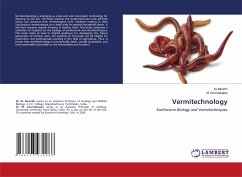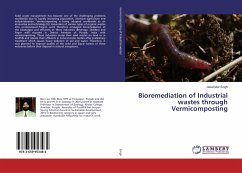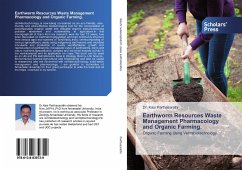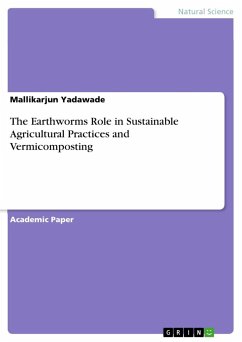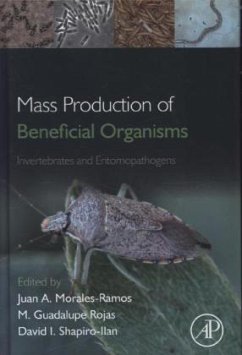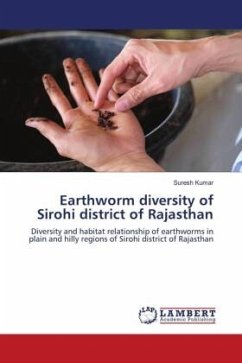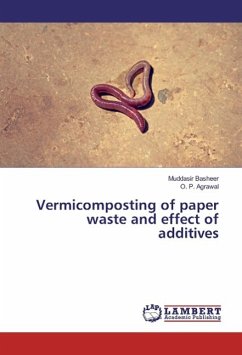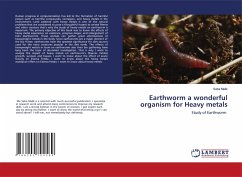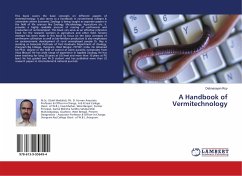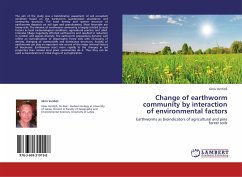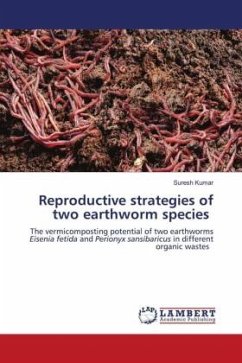
Reproductive strategies of two earthworm species
The vermicomposting potential of two earthworms Eisenia fetida and Perionyx sansibaricus in different organic wastes
Versandkostenfrei!
Versandfertig in 6-10 Tagen
29,99 €
inkl. MwSt.

PAYBACK Punkte
15 °P sammeln!
Reproductive strategies and ecological categories of earthworms are closely related. By studying the reproductive biology of earthworms (viz., cocoon morphology, incubation period, hatching success, fecundity, and dynamics of reproduction) we can find suitable earthworm species. Inoculating with appropriate species of earthworms to promote soil health is now regarded as an important step toward the restoration of degraded soils. Such information could be used to fit these earthworm species into broad categories of reproductive strategies and help in the selection of appropriate species for ver...
Reproductive strategies and ecological categories of earthworms are closely related. By studying the reproductive biology of earthworms (viz., cocoon morphology, incubation period, hatching success, fecundity, and dynamics of reproduction) we can find suitable earthworm species. Inoculating with appropriate species of earthworms to promote soil health is now regarded as an important step toward the restoration of degraded soils. Such information could be used to fit these earthworm species into broad categories of reproductive strategies and help in the selection of appropriate species for vermiculture. There is a need for a new perspective for developing sustainable food production through the popularization of technology. Waste degradation and composting by earthworms is an economically and environmentally preferred technology over conventional composting technologies as it is a rapid and nearly odorless process, reducing the composting time by more than half, and the end product is disinfected, detoxified and highly nutritive. It can help in developing sustainable agriculture and the removal of chemical fertilizers to produce healthy crops.



